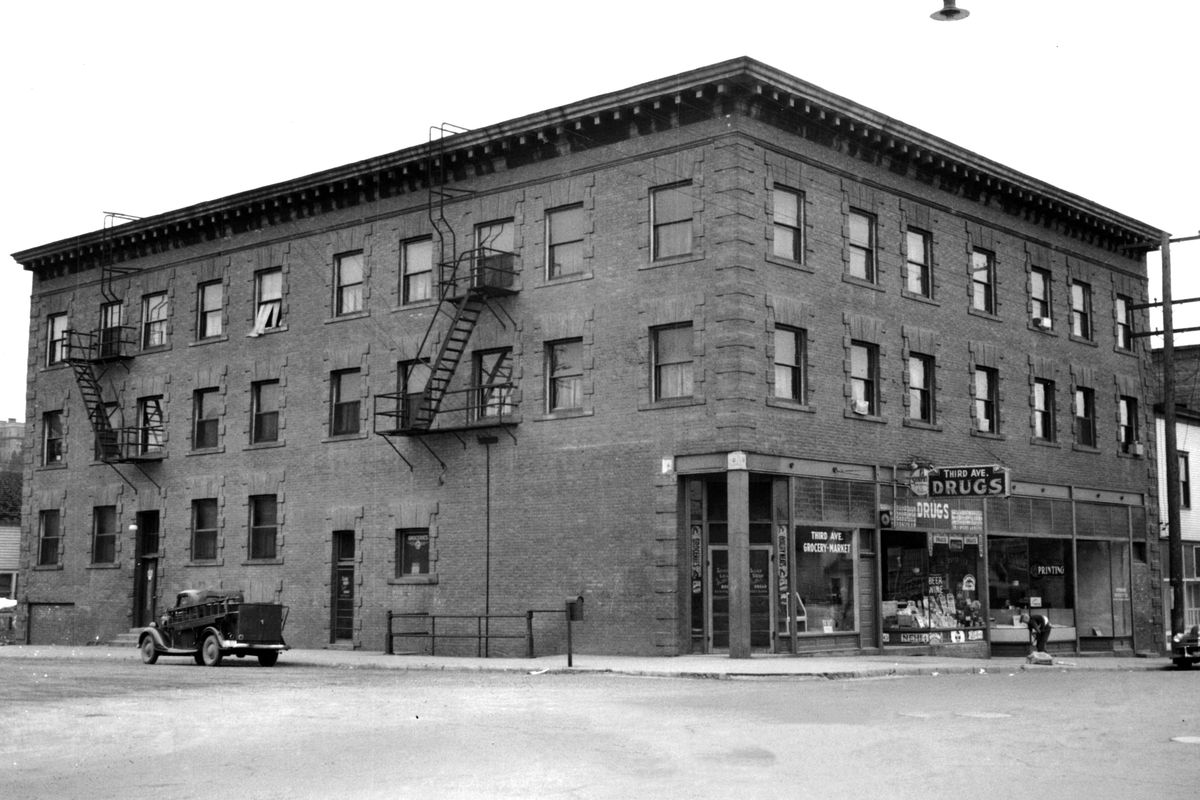Then and Now: Rosemary Apartments

A German immigrant, John Feulner, arrived in Spokane in 1889, a month before the great fire in August. He went to work for Washington Water Power and became the utility’s first cable splicer.
Around 1905, Feulner built the Rosemary Apartments at Third Avenue and Pine Street. Over the next 40 years, the Feulners would reside there but would lease the building to various operators. The three- and four-room apartments would rent for $25-$35 a month in 1907. Early advertisements referred to the Feulner Building, later the Rosemary Apartments, and touted electricity, continuous hot water and janitorial service. Feulner retired in 1945 and died in 1947 at the age of 90.
There were retail spaces on the ground floor, and Third Ave. Drugs was there for more than 40 years.
Clarence T. Freeman, born around 1910, grew up in Spokane. As a Black man in the 1930s, work was not easy to find. But Freeman’s enterprise and enthusiasm took him from menial jobs as a bellboy, janitor and clerk to attending classes at Gonzaga University and building his own home in 1939 on one of two lots he bought for $10.
After service in World War II, Freeman returned to Spokane and more menial jobs, but he and his wife, Frances, saved their money. They bought the Merlin Hotel and, later, the Rosemary Apartments. “After the war, Frances and I were convinced there was a need for good apartments for military and civilian personnel, so we started dealing around,” he told the Spokane Daily Chronicle in 1961.
Under the Freeman’s ownership, “most of the renters were single African-American men and women along with some couples,” said the Freeman’s daughter, Sandra Freeman.
The aging Rosemary Apartments would be torn down in 1966. Sandra Freeman recalls a car wash on the site until the mid-1970s, when Freeman built a new restaurant called VIP’s. It would become Frankie Doodle’s around 1981.
Freeman also built Dick’s Hamburgers in the 1960s.
Freeman continued to invest in real estate, as well as run a construction company with partner Robert E. Goebel, a grocery store and a laundromat.
“People often tell me how lucky we’ve been,” he told the Chronicle. “I’m a great believer in luck, as long as it is mixed 99 parts with good old-fashioned work.”
Freeman died in 2006 at the age of 96.